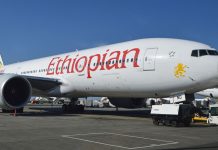The Chief Executive of International Airlines Group (IAG), Luis Gallego, has warned that Heathrow Airport’s proposed third runway could end up underused or even “empty” if the cost of expansion results in significantly higher passenger charges.
Heathrow’s long-delayed expansion plan, which includes a £21 billion third runway and overall £49 billion infrastructure investment, aims to increase annual capacity to 150 million passengers. The latest proposal, submitted last Thursday, suggests the project could be completed by 2035, with planning permission secured by 2029.
Gallego, however, expressed concern over the potential doubling of Heathrow’s already steep passenger charges, which are currently around $33 per traveler, regulated by the UK Civil Aviation Authority (CAA). He stated, “With the current regulatory model, it is going to be very expensive for customers. We risk building a new runway that’s empty.”
IAG, which owns British Airways, Heathrow’s largest customer, as well as Iberia, Aer Lingus, and Vueling, has historically supported Heathrow’s growth but criticized the cost model. Gallego noted that IAG submitted its concerns to the CAA and prefers an expansion model that is financially sustainable for both airlines and passengers.
Heathrow has defended the expansion, claiming increased competition will drive fares down. But critics, including BA CEO Sean Doyle, argue the new runway could add over $130 per long-haul passenger due to rising operational costs.
While the UK’s Prime Minister Sir Keir Starmer backs the expansion, London Mayor Sadiq Khan has strongly opposed it, citing environmental concerns such as noise pollution and climate impact. Meanwhile, a rival proposal from the Arora Group has been floated as a more cost-effective alternative.
Despite these tensions, IAG reported a 43.5% jump in half-year profits, with second-quarter operating profits reaching €1.68 billion, driven by strong demand across North Atlantic, Latin American, and European routes. Gallego said the performance reflected “resilience of demand for travel” and IAG’s continued transformation, while also acknowledging the “uncertainty” created by geopolitical risks.
Heathrow’s third runway proposal has faced more than two decades of delays due to political, legal, and environmental opposition. The project was halted during the COVID-19 pandemic and only resumed after a UK Supreme Court ruling in its favor in 2020.
















